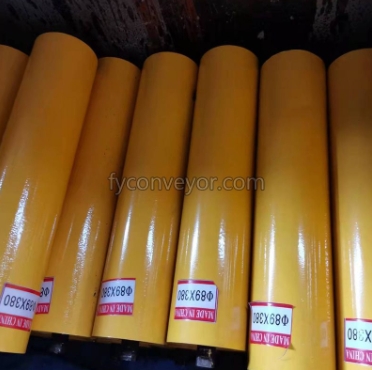What is guide roller?
"What is guide roller? A guide roller, also known as a roller guide, is a mechanical device used to facilitate the movement and alignment of objects along a predetermined path. Typically composed of a cylindrical roller mounted on bearings, guide rollers find widespread applications in various industries ranging from manufacturing and material handling to conveyor systems and automation."
Origins and Evolution
The concept of guide rollers can be traced back to ancient times when rudimentary forms of rollers were used to ease the transportation of heavy objects. Over the centuries, advancements in engineering and manufacturing techniques led to the development of more sophisticated guide roller systems. The industrial revolution further accelerated innovation in roller technology, paving the way for the mass production of precision-engineered guide rollers.
Functionality and Design
Guide rollers function by providing support and guidance to objects as they move along a predetermined path. The cylindrical shape of the roller allows for smooth rotation, reducing friction and facilitating effortless movement. Bearings mounted within the roller assembly ensure stability and precision, enabling accurate alignment of objects even at high speeds or under heavy loads. Guide rollers come in various sizes and configurations to accommodate different applications and operational requirements.
Applications in Industry
Guide rollers play a crucial role in a wide range of industrial processes, contributing to increased efficiency, productivity, and safety. In manufacturing plants, guide rollers are used in conveyor systems to transport materials between different stages of production. They are also employed in assembly lines to facilitate the precise positioning of components during assembly processes. Additionally, guide rollers find applications in packaging, printing, textile, and automotive industries, among others.
Advantages and Benefits
The use of guide rollers offers several advantages in industrial settings. By ensuring smooth and controlled movement of objects, guide rollers help minimize the risk of damage or misalignment, thereby reducing downtime and maintenance costs. Furthermore, guide rollers enhance operational flexibility by allowing for the efficient handling of diverse materials and product types. Their ability to accommodate varying speeds and loads makes them suitable for a wide range of applications, from lightweight packaging to heavy-duty manufacturing.
Impact on Automation
In the era of automation, guide rollers play a pivotal role in enabling the seamless operation of robotic systems and automated machinery. Integrated into robotic arms and material handling systems, guide rollers facilitate precise positioning and movement of components, enhancing the efficiency and accuracy of automated processes. As industries increasingly embrace automation to improve productivity and competitiveness, the demand for advanced guide roller solutions is expected to grow significantly.
Conclusion
In conclusion, guide rollers represent an essential component of modern industrial infrastructure, enabling the smooth and precise movement of objects along predetermined paths. From their humble origins to their widespread adoption in contemporary manufacturing and automation systems, guide rollers have undergone significant evolution and innovation. As industries continue to advance and evolve, the role of guide rollers in facilitating efficient and reliable material handling processes will remain indispensable.



